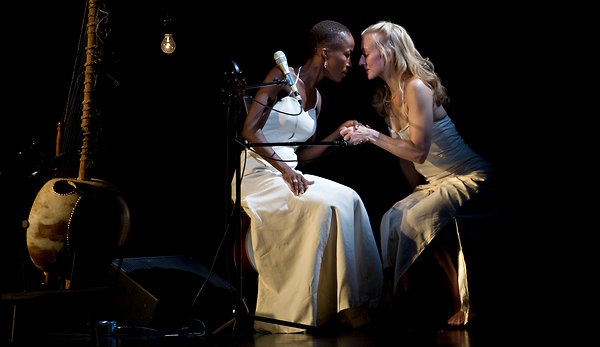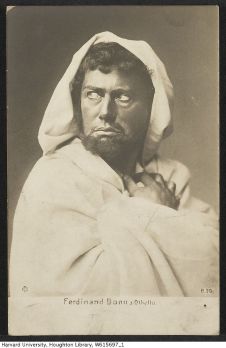This post has been contributed by Kate Rothwell. For more on Desdemona, see our other student posts: ‘Desdemona and the Female Voice’, ‘Othello Sucks: A Different Perspective’ and ‘On Carney’s “Being Born A Girl”: Toni Morrison’s Desdemona’.
Even now, now, very now, an old black ram
Is tupping your white ewe. Arise, arise! (Othello 1.1.88-89)
Racist slurs, fears of miscegenation, xenophobia – all integral parts of one of Shakespeare’s most well-known tragedies.

 Carney approaches Morrison’s Desdemona with efforts to evaluate and reflect upon the differences between Morrison and Shakespeare’s characters, and the theme of womanhood as Morrison addresses it. In ‘Being a Girl: Toni Morrison’s Desdemona’, therefore, Carney addresses the tradition of Desdemona’s depiction as “silent, submissive, and in a sense even complicit in her own murder” (4), and contrasts it to Morrison’s, in which she “exist[s] in places where [she] can speak, at last, words that in earth life were sealed or twisted into the language of obedience” (14).
Carney approaches Morrison’s Desdemona with efforts to evaluate and reflect upon the differences between Morrison and Shakespeare’s characters, and the theme of womanhood as Morrison addresses it. In ‘Being a Girl: Toni Morrison’s Desdemona’, therefore, Carney addresses the tradition of Desdemona’s depiction as “silent, submissive, and in a sense even complicit in her own murder” (4), and contrasts it to Morrison’s, in which she “exist[s] in places where [she] can speak, at last, words that in earth life were sealed or twisted into the language of obedience” (14).
